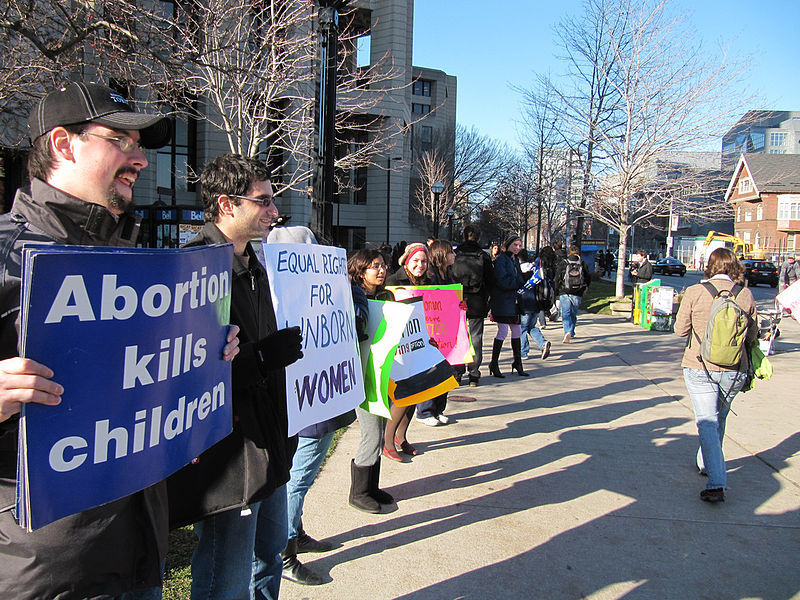

A 2009 anti-abortion protest held in Toronto.
Massachusetts Governor Deval Patrick signed a bill on Wednesday creating new measures that prohibit anti-abortion protesters from hindering individuals from entering or exiting abortion clinics.
The law, called the Act to Promote Public Safety and Protect Access to Reproductive Health Care Facilities, allows police to "order the immediate dispersal of a gathering that substantially impedes access to or departure from an entrance or driveway to a reproductive health care facility." After the dispersal, the protesters will be forced to move 25 feet away from the clinic for 8 hours or until the facility closes, whichever is earlier. Those who fail to comply with these initial orders may incur a fine or an injunction.
"I am incredibly proud to sign legislation that continues Massachusetts leadership in ensuring that women seeking to access reproductive health facilities can do so safely and without harassment," Patrick said in a statement.
Unlike the previous 2007 Massachusetts law which regulated a 35-foot buffer zone around abortion clinics, this new law means "peaceful demonstrations are allowed within any range of reproductive health care facilities so long as they are non-threatening and do not block facility entrances," according to Boston.com, creating a balance between providing protesters the right to free speech, but also protecting women and health care workers from intimidation or threats.
While pro-choice advocates praised this decision, anti-abortion activists criticized the move, and some even asserted they will challenge its constitutionality once again.
However, state officials modeled this bill "on similar laws elsewhere that had withstood legal challenges," according to the Guardian. State Attorney General Martha Coakley also stated, "We believe it will withstand any constitutional scrutiny moving forward."


















